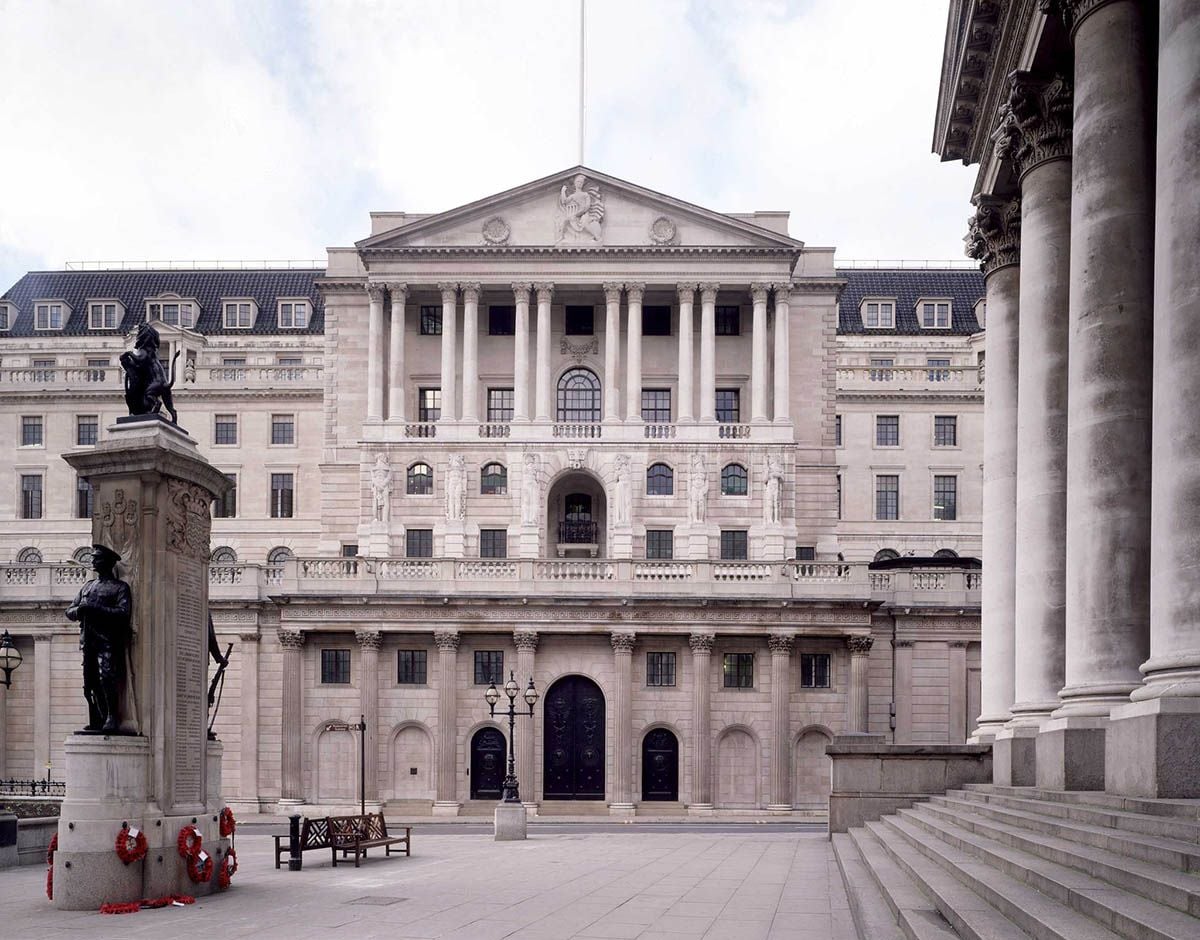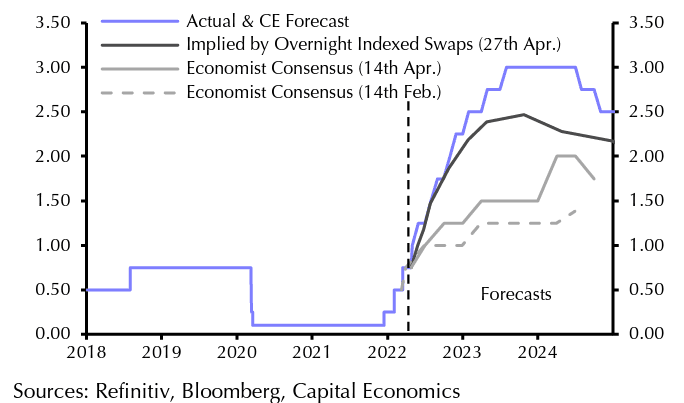Bank of England to Hike to 3.0% says Capital Economics
- Written by: Gary Howes

Image © Bank of England
The Bank of England will meet the market's expectation and hike interest rates to 3.0% by 2023, say Capital Economics.
The independent research consultancy have upgraded their forecasts for Bank Rate, saying "3% is the magic number for interest rates".
The forecast puts them well ahead of the institutional analyst community which sees Bank Rate topping out at 2.0%.
OIS data meanwhile shows investors to be anticipating Bank Rate to peak around 2.5% in 2023.
This therefore puts Capital Economics ahead of both the market and their research peers.
Image courtesy of Capital Economics.
Capital Economics are betting both consensus and the market do not appreciate that the UK labour market will remain robust, even as economic growth slows.
"Even though jobs growth will slow, we think the labour market will remain tighter for longer and that wage growth will be higher. This is because we think the influences of Brexit and the pandemic will restrain the supply of workers for another couple of years," says Paul Dales, Chief UK Economist at Capital Economics.
The Bank will therefore be inclined to raise rates in the face of domestically embedded inflationary pressures generated by higher wage settlements.
Capital Economics have consistently been more 'hawkish' on the interest rate outlook than the consensus since early this year when they first forecast that Bank Rate would peak at 2.00% next year.
"At that point, the markets were pricing in a peak of 1.75-2.00% and the consensus was for a peak of 1.25-1.50%. Since then, both the markets and the consensus have moved towards our forecast," says Dales.
Dales is not concerned the Bank will abandon rate hikes in the face of fading economic growth, simply because they will be aware the main catalyst for this fading growth is inflation.
"The best way to help the economy and households is to ensure that inflation returns to the 2% target," says Dales.




